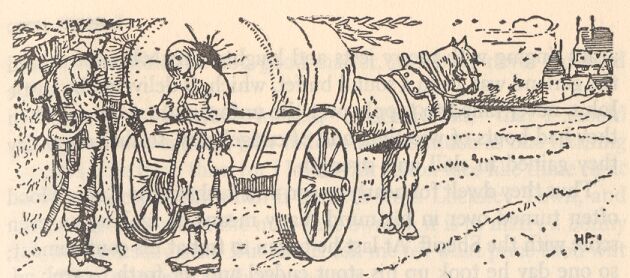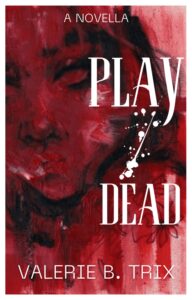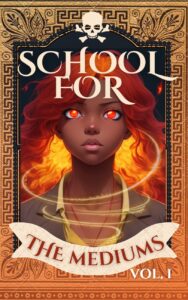NOW WHEN THE SHERIFF found that neither law nor guile could overcome Robin Hood, he was much perplexed, and said to himself, “Fool that I am! Had I not told our King of Robin Hood, I would not have gotten myself into such a coil; but now I must either take him captive or have wrath visited upon my head from his most gracious Majesty. I have tried law, and I have tried guile, and I have failed in both; so I will try what may be done with might.”
Thus communing within himself, he called his constables together and told them what was in his mind. “Now take ye each four men, all armed in proof,” said he, “and get ye gone to the forest, at different points, and lie in wait for this same Robin Hood. But if any constable finds too many men against him, let him sound a horn, and then let each band within hearing come with all speed and join the party that calls them. Thus, I think, shall we take this green-clad knave. Furthermore, to him that first meeteth with Robin Hood shall one hundred pounds of silver money be given, if he be brought to me dead or alive; and to him that meeteth with any of his band shall twoscore pounds be given, if such be brought to me dead or alive. So, be ye bold and be ye crafty.”
So thus they went in threescore companies of five to Sherwood Forest, to take Robin Hood, each constable wishing that he might be the one to find the bold outlaw, or at least one of his band. For seven days and nights they hunted through the forest glades, but never saw so much as a single man in Lincoln green; for tidings of all this had been brought to Robin Hood by trusty Eadom o’ the Blue Boar.
When he first heard the news, Robin said, “If the Sheriff dare send force to meet force, woe will it be for him and many a better man besides, for blood will flow and there will be great trouble for all. But fain would I shun blood and battle, and fain would I not deal sorrow to womenfolk and wives because good stout yeomen lose their lives. Once I slew a man, and never do I wish to slay a man again, for it is bitter for the soul to think thereon. So now we will abide silently in Sherwood Forest, so that it may be well for all, but should we be forced to defend ourselves, or any of our band, then let each man draw bow and brand with might and main.”
At this speech many of the band shook their heads, and said to themselves, “Now the Sheriff will think that we are cowards, and folk will scoff throughout the countryside, saying that we fear to meet these men.” But they said nothing aloud, swallowing their words and doing as Robin bade them.
Thus they hid in the depths of Sherwood Forest for seven days and seven nights and never showed their faces abroad in all that time; but early in the morning of the eighth day Robin Hood called the band together and said, “Now who will go and find what the Sheriff’s men are at by this time? For I know right well they will not bide forever within Sherwood shades.”
At this a great shout arose, and each man waved his bow aloft and cried that he might be the one to go. Then Robin Hood’s heart was proud when he looked around on his stout, brave fellows, and he said, “Brave and true are ye all, my merry men, and a right stout band of good fellows are ye, but ye cannot all go, so I will choose one from among you, and it shall be good Will Stutely, for he is as sly as e’er an old dog fox in Sherwood Forest.”
Then Will Stutely leaped high aloft and laughed loudly, clapping his hands for pure joy that he should have been chosen from among them all. “Now thanks, good master,” quoth he, “and if I bring not news of those knaves to thee, call me no more thy sly Will Stutely.”
Then he clad himself in a friar’s gown, and underneath the robe he hung a good broadsword in such a place that he could easily lay hands upon it. Thus clad, he set forth upon his quest, until he came to the verge of the forest, and so to the highway. He saw two bands of the Sheriff’s men, yet he turned neither to the right nor the left, but only drew his cowl the closer over his face, folding his hands as if in meditation. So at last he came to the Sign of the Blue Boar. “For,” quoth he to himself, “our good friend Eadom will tell me all the news.”
At the Sign of the Blue Boar he found a band of the Sheriffs men drinking right lustily; so, without speaking to anyone, he sat down upon a distant bench, his staff in his hand, and his head bowed forward as though he were meditating. Thus he sat waiting until he might see the landlord apart, and Eadom did not know him, but thought him to be some poor tired friar, so he let him sit without saying a word to him or molesting him, though he liked not the cloth. “For,” said he to himself, “it is a hard heart that kicks the lame dog from off the sill.” As Stutely sat thus, there came a great house cat and rubbed against his knee, raising his robe a palm’s-breadth high. Stutely pushed his robe quickly down again, but the constable who commanded the Sheriffs men saw what had passed, and saw also fair Lincoln green beneath the friar’s robe. He said nothing at the time, but communed within himself in this wise: “Yon is no friar of orders gray, and also, I wot, no honest yeoman goeth about in priest’s garb, nor doth a thief go so for nought. Now I think in good sooth that is one of Robin Hood’s own men.” So, presently, he said aloud, “O holy father, wilt thou not take a good pot of March beer to slake thy thirsty soul withal?”
But Stutely shook his head silently, for he said to himself, “Maybe there be those here who know my voice.”
Then the constable said again, “Whither goest thou, holy friar, upon this hot summer’s day?”
“I go a pilgrim to Canterbury Town,” answered Will Stutely, speaking gruffly, so that none might know his voice.
Then the constable said, for the third time, “Now tell me, holy father, do pilgrims to Canterbury wear good Lincoln green beneath their robes? Ha! By my faith, I take thee to be some lusty thief, and perhaps one of Robin Hood’s own band! Now, by Our Lady’s grace, if thou movest hand or foot, I will run thee through the body with my sword!”
Then he flashed forth his bright sword and leaped upon Will Stutely, thinking he would take him unaware; but Stutely had his own sword tightly held in his hand, beneath his robe, so he drew it forth before the constable came upon him. Then the stout constable struck a mighty blow; but he struck no more in all that fight, for Stutely, parrying the blow right deftly, smote the constable back again with all his might. Then he would have escaped, but could not, for the other, all dizzy with the wound and with the flowing blood, seized him by the knees with his arms even as he reeled and fell. Then the others rushed upon him, and Stutely struck again at another of the Sheriff’s men, but the steel cap glanced the blow, and though the blade bit deep, it did not kill. Meanwhile, the constable, fainting as he was, drew Stutely downward, and the others, seeing the yeoman hampered so, rushed upon him again, and one smote him a blow upon the crown so that the blood ran down his face and blinded him. Then, staggering, he fell, and all sprang upon him, though he struggled so manfully that they could hardly hold him fast. Then they bound him with stout hempen cords so that he could not move either hand or foot, and thus they overcame him.
Robin Hood stood under the greenwood tree, thinking of Will Stutely and how he might be faring, when suddenly he saw two of his stout yeomen come running down the forest path, and betwixt them ran buxom Maken of the Blue Boar. Then Robin’s heart fell, for he knew they were the bearers of ill tidings.
“Will Stutely hath been taken,” cried they, when they had come to where he stood.
“And is it thou that hast brought such doleful news?” said Robin to the lass.
“Ay, marry, for I saw it all,” cried she, panting as the hare pants when it has escaped the hounds, “and I fear he is wounded sore, for one smote him main shrewdly i’ the crown. They have bound him and taken him to Nottingham Town, and ere I left the Blue Boar I heard that he should be hanged tomorrow day.”
“He shall not be hanged tomorrow day,” cried Robin; “or, if he be, full many a one shall gnaw the sod, and many shall have cause to cry Alack-a- day!”
Then he clapped his horn to his lips and blew three blasts right loudly, and presently his good yeomen came running through the greenwood until sevenscore bold blades were gathered around him.
“Now hark you all!” cried Robin. “Our dear companion Will Stutely hath been taken by that vile Sheriff’s men, therefore doth it behoove us to take bow and brand in hand to bring him off again; for I wot that we ought to risk life and limb for him, as he hath risked life and limb for us. Is it not so, my merry men all?” Then all cried, “Ay!” with a great voice.
So the next day they all wended their way from Sherwood Forest, but by different paths, for it behooved them to be very crafty; so the band separated into parties of twos and threes, which were all to meet again in a tangled dell that lay near to Nottingham Town. Then, when they had all gathered together at the place of meeting, Robin spoke to them thus:
“Now we will lie here in ambush until we can get news, for it doth behoove us to be cunning and wary if we would bring our friend Will Stutely off from the Sheriff’s clutches.”
So they lay hidden a long time, until the sun stood high in the sky. The day was warm and the dusty road was bare of travelers, except an aged palmer who walked slowly along the highroad that led close beside the gray castle wall of Nottingham Town. When Robin saw that no other wayfarer was within sight, he called young David of Doncaster, who was a shrewd man for his years, and said to him, “Now get thee forth, young David, and speak to yonder palmer that walks beside the town wall, for he hath come but now from Nottingham Town, and may tell thee news of good Stutely, perchance.”
So David strode forth, and when he came up to the pilgrim, he saluted him and said, “Good morrow, holy father, and canst thou tell me when Will Stutely will be hanged upon the gallows tree? I fain would not miss the sight, for I have come from afar to see so sturdy a rogue hanged.”
“Now, out upon thee, young man,” cried the Palmer, “that thou shouldst speak so when a good stout man is to be hanged for nothing but guarding his own life!” And he struck his staff upon the ground in anger. “Alas, say I, that this thing should be! For even this day, toward evening, when the sun falleth low, he shall be hanged, fourscore rods from the great town gate of Nottingham, where three roads meet; for there the Sheriff sweareth he shall die as a warning to all outlaws in Nottinghamshire. But yet, I say again, Alas! For, though Robin Hood and his band may be outlaws, yet he taketh only from the rich and the strong and the dishonest man, while there is not a poor widow nor a peasant with many children, nigh to Sherwood, but has barley flour enough all the year long through him. It grieves my heart to see one as gallant as this Stutely die, for I have been a good Saxon yeoman in my day, ere I turned palmer, and well I know a stout hand and one that smiteth shrewdly at a cruel Norman or a proud abbot with fat moneybags. Had good Stutely’s master but known how his man was compassed about with perils, perchance he might send succor to bring him out of the hand of his enemies.
“Ay, marry, that is true,” cried the young man. “If Robin and his men be nigh this place, I wot right well they will strive to bring him forth from his peril. But fare thee well, thou good old man, and believe me, if Will Stutely die, he shall be right well avenged.”
Then he turned and strode rapidly away; but the Palmer looked after him, muttering, “I wot that youth is no country hind that hath come to see a good man die. Well, well, perchance Robin Hood is not so far away but that there will be stout doings this day.” So he went upon his way, muttering to himself.
When David of Doncaster told Robin Hood what the Palmer had said to him, Robin called the band around him and spoke to them thus:
“Now let us get straightway into Nottingham Town and mix ourselves with the people there; but keep ye one another in sight, pressing as near the prisoner and his guards as ye can, when they come outside the walls. Strike no man without need, for I would fain avoid bloodshed, but if ye do strike, strike hard, and see that there be no need to strike again. Then keep all together until we come again to Sherwood, and let no man leave his fellows.”

The sun was low in the western sky when a bugle note sounded from the castle wall. Then all was bustle in Nottingham Town and crowds filled the streets, for all knew that the famous Will Stutely was to be hanged that day. Presently the castle gates opened wide and a great array of men-at-arms came forth with noise and clatter, the Sheriff, all clad in shining mail of linked chain, riding at their head. In the midst of all the guard, in a cart, with a halter about his neck, rode Will Stutely. His face was pale with his wound and with loss of blood, like the moon in broad daylight, and his fair hair was clotted in points upon his forehead, where the blood had hardened. When he came forth from the castle he looked up and he looked down, but though he saw some faces that showed pity and some that showed friendliness, he saw none that he knew. Then his heart sank within him like a plummet of lead, but nevertheless he spoke up boldly.
“Give a sword into my hand, Sir Sheriff,” said he, “and wounded man though I be, I will fight thee and all thy men till life and strength be gone.”
“Nay, thou naughty varlet,” quoth the Sheriff, turning his head and looking right grimly upon Will Stutely, “thou shalt have no sword but shall die a mean death, as beseemeth a vile thief like thee.”
“Then do but untie my hands and I will fight thee and thy men with no weapon but only my naked fists. I crave no weapon, but let me not be meanly hanged this day.”
Then the Sheriff laughed aloud. “Why, how now,” quoth he, “is thy proud stomach quailing? Shrive thyself, thou vile knave, for I mean that thou shalt hang this day, and that where three roads meet, so that all men shall see thee hang, for carrion crows and daws to peck at.”
“O thou dastard heart!” cried Will Stutely, gnashing his teeth at the Sheriff. “Thou coward hind! If ever my good master meet thee thou shalt pay dearly for this day’s work! He doth scorn thee, and so do all brave hearts. Knowest thou not that thou and thy name are jests upon the lips of every brave yeoman? Such a one as thou art, thou wretched craven, will never be able to subdue bold Robin Hood.”
“Ha!” cried the Sheriff in a rage, “is it even so? Am I a jest with thy master, as thou callest him? Now I will make a jest of thee and a sorry jest withal, for I will quarter thee limb from limb, after thou art hanged.” Then he spurred his horse forward and said no more to Stutely.
At last they came to the great town gate, through which Stutely saw the fair country beyond, with hills and dales all clothed in verdure, and far away the dusky line of Sherwood’s skirts. Then when he saw the slanting sunlight lying on field and fallow, shining redly here and there on cot and farmhouse, and when he heard the sweet birds singing their vespers, and the sheep bleating upon the hillside, and beheld the swallows flying in the bright air, there came a great fullness to his heart so that all things blurred to his sight through salt tears, and he bowed his head lest the folk should think him unmanly when they saw the tears in his eyes. Thus he kept his head bowed till they had passed through the gate and were outside the walls of the town. But when he looked up again he felt his heart leap within him and then stand still for pure joy, for he saw the face of one of his own dear companions of merry Sherwood; then glancing quickly around he saw well-known faces upon all sides of him, crowding closely upon the men-at-arms who were guarding him. Then of a sudden the blood sprang to his cheeks, for he saw for a moment his own good master in the press and, seeing him, knew that Robin Hood and all his band were there. Yet betwixt him and them was a line of men-at-arms.
“Now, stand back!” cried the Sheriff in a mighty voice, for the crowd pressed around on all sides. “What mean ye, varlets, that ye push upon us so? Stand back, I say!”
Then came a bustle and a noise, and one strove to push between the men- at-arms so as to reach the cart, and Stutely saw that it was Little John that made all that stir.
“Now stand thou back!” cried one of the men-at-arms whom Little John pushed with his elbows.
“Now stand thou back thine own self,” quoth Little John, and straightway smote the man a buffet beside his head that felled him as a butcher fells an ox, and then he leaped to the cart where Stutely sat.
“I pray thee take leave of thy friends ere thou diest, Will,” quoth he, “or maybe I will die with thee if thou must die, for I could never have better company.” Then with one stroke he cut the bonds that bound the other’s arms and legs, and Stutely leaped straightway from the cart.
“Now as I live,” cried the Sheriff, “yon varlet I know right well is a sturdy rebel! Take him, I bid you all, and let him not go!”
So saying, he spurred his horse upon Little John, and rising in his stirrups smote with might and main, but Little John ducked quickly underneath the horse’s belly and the blow whistled harmlessly over his head.
“Nay, good Sir Sheriff,” cried he, leaping up again when the blow had passed, “I must e’en borrow thy most worshipful sword.” Thereupon he twitched the weapon deftly from out the Sheriff’s hand, “Here, Stutely,” he cried, “the Sheriff hath lent thee his sword! Back to back with me, man, and defend thyself, for help is nigh!”

“Down with them!” bellowed the Sheriff in a voice like an angry bull; and he spurred his horse upon the two who now stood back to back, forgetting in his rage that he had no weapon with which to defend himself.
“Stand back, Sheriff!” cried Little John; and even as he spoke, a bugle horn sounded shrilly and a clothyard shaft whistled within an inch of the Sheriff’s head. Then came a swaying hither and thither, and oaths, cries, and groans, and clashing of steel, and swords flashed in the setting sun, and a score of arrows whistled through the air. And some cried, “Help, help!” and some, “A rescue, a rescue!”
“Treason!” cried the Sheriff in a loud voice. “Bear back! Bear back! Else we be all dead men!” Thereupon he reined his horse backward through the thickest of the crowd.
Now Robin Hood and his band might have slain half of the Sheriff’s men had they desired to do so, but they let them push out of the press and get them gone, only sending a bunch of arrows after them to hurry them in their flight.
“Oh stay!” shouted Will Stutely after the Sheriff. “Thou wilt never catch bold Robin Hood if thou dost not stand to meet him face to face.” But the Sheriff, bowing along his horse’s back, made no answer but only spurred the faster.
Then Will Stutely turned to Little John and looked him in the face till the tears ran down from his eyes and he wept aloud; and kissing his friend’s cheeks, “O Little John!” quoth he, “mine own true friend, and he that I love better than man or woman in all the world beside! Little did I reckon to see thy face this day, or to meet thee this side Paradise.” Little John could make no answer, but wept also.
Then Robin Hood gathered his band together in a close rank, with Will Stutely in the midst, and thus they moved slowly away toward Sherwood, and were gone, as a storm cloud moves away from the spot where a tempest has swept the land. But they left ten of the Sheriff’s men lying along the ground wounded—some more, some less—yet no one knew who smote them down.
Thus the Sheriff of Nottingham tried thrice to take Robin Hood and failed each time; and the last time he was frightened, for he felt how near he had come to losing his life; so he said, “These men fear neither God nor man, nor king nor king’s officers. I would sooner lose mine office than my life, so I will trouble them no more.” So he kept close within his castle for many a day and dared not show his face outside of his own household, and all the time he was gloomy and would speak to no one, for he was ashamed of what had happened that day.








The Dream of the Red Chamber
Completed